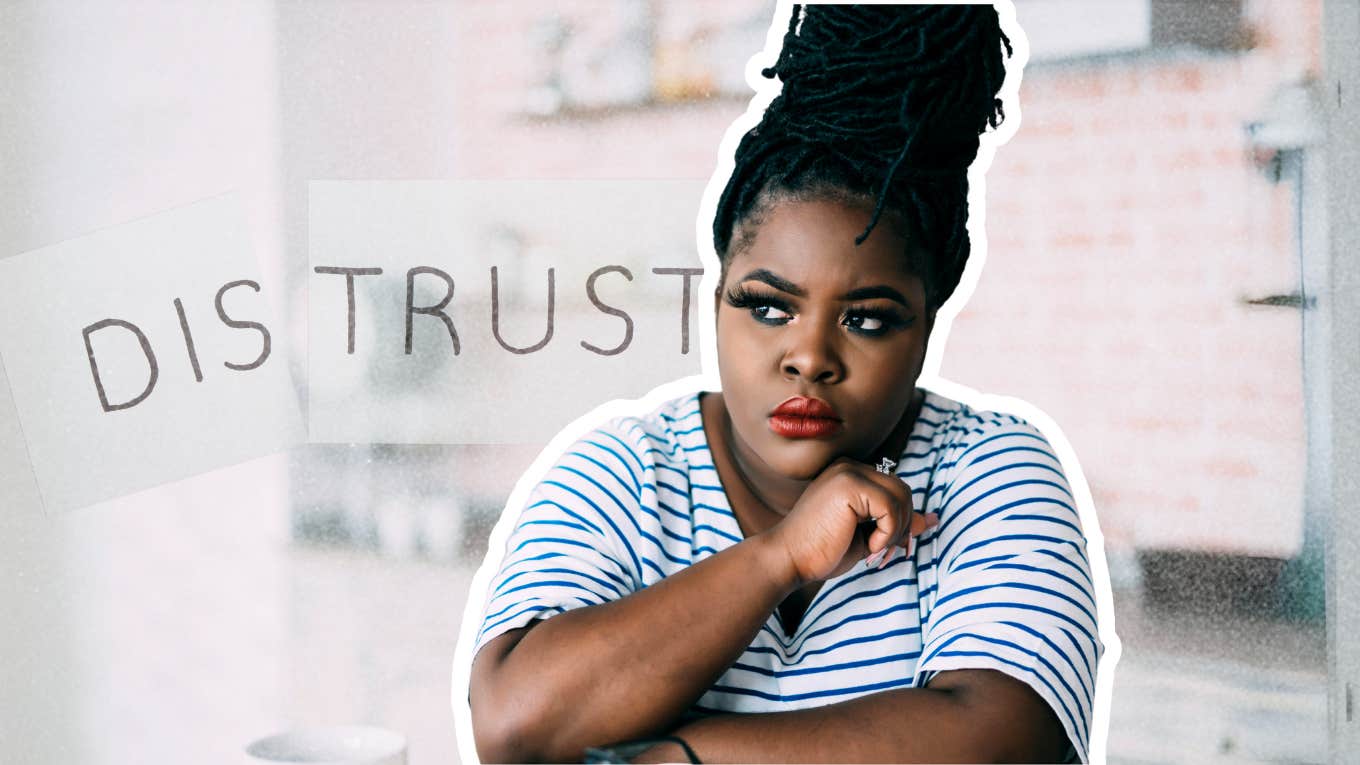If You're Not Feeling These 5 Things, Your Partner Doesn't Trust You
Is the lack of you trust vibe all in your head?
 Vladimir Vladimirov, ogichobanov | Canva
Vladimir Vladimirov, ogichobanov | Canva If you’ve been with your partner for a while, your greatest hope is that they can learn to both trust and depend on you.
So, when it feels as if this isn’t the case, it can feel like a stab to the heart. And being real for a second: you’ve probably already gone through the whole process of questioning your worth as a partner.
Like, “Am I truly that bad of a partner? Was my efforts not enough?” But wait, before we get ahead of ourselves, does your partner even feel this way in the first place? And how do we know it’s not all in our heads?
Licensed counselor Deborah Krevalin discusses the five signs your partner doesn’t trust you — and what this can mean about your relationship.
If you're not feeling these five things, your partner doesn't trust you:
1. Do they talk kindly about their family?
Want to know if your partner truly trusts you? Observe the way they talk about your loved ones. If they love your friends and family or at the very least respect them, then they likely trust you.
But, if they don’t? Well, if you find your partner constantly demeaning your loved ones then they’re trying to create distance in those relationships. Why? Because they want to get closer to you.
They want to monitor you and ensure you remain by their side — even if it means making you miserable.
2. Do they accuse you of things you didn't do?
Does your partner always accuse you of lying? Like, you could say the smallest of things and they’ll accuse you of making things up?
People who do this have major trust issues and whether it’s from past or present relationships it doesn’t matter. The reality is, they don’t trust you and never will.
Someone's lack of trust doesn't have to do with you. According to research from the National Library of Medicine, people's lack of trust is primarily associated with socialization factors, including family dynamics and influences that happened years before they met you.
Yet, more than that this habit is dangerous. Constantly being accused of dishonesty can put anyone in defensive mode affecting their mental health in the process.
3. Do they insert themselves into your plans?
Listen, we all love doing things with our partners. And yes, we love to hang out and do our favorite activities together.
But, there’s a difference between hanging out and inserting themselves. For instance, if you’ve made plans already and they decide to insert themselves last minute, this is a huge sign they don’t trust you.
Krevalin explains that your partner will do this to prevent you from having free time away from them. And actions like these tend to come from a deep-rooted place of insecurity.
 Cookie Studio / Shutterstock
Cookie Studio / Shutterstock
4. Do they ask invasive questions?
Does this sound familiar? “Hey, where are you going? Who are you going with? Well, how long are you staying? Will there be anyone else there? Are there any friends from the opposite sex attending? Well, how close are you?
Pause and think for a second — is this your partner or your parent? The truth is that there is nothing wrong with asking questions. But too many questions can be a problem.
Because let’s face it, someone who is secure in their relationship won’t care if their partner goes out. They might even encourage it.
However, asking too many questions shows a lack of trust on their part. And it exposes their insecurities about you remaining faithful and committed to the relationship. Which isn’t a good mentality to have about your partner in the first place.
5. Do they stalk your social media accounts?
“They are looking for evidence that you’re not trustworthy,” begins Krevalin. They’re looking for ways to confirm their insecurities and reflect those insecurities onto you.
And if they can’t find something now? Well, they’ll keep checking and checking until they can find something to twist and manipulate.
Which will only put you on defense and create a false narrative that you’re just not trustworthy enough.
Marielisa Reyes is a writer with a bachelor's in psychology who covers self-help, relationships, career, and family topics.

